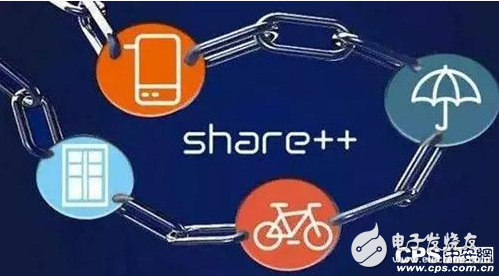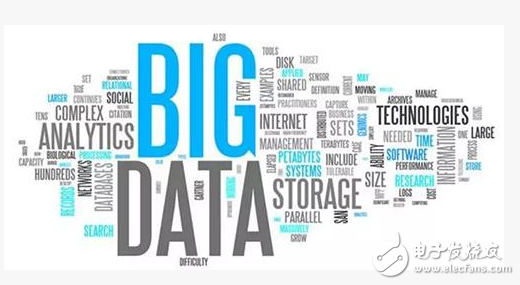At the beginning of 2017, the sharing economy came into being, which attracted great attention from all parties. Once shared bicycles were launched, they overwhelmingly changed the concept of urban travel, and then shared umbrellas, shared power banks, shared sports warehouses, and shared bicycles. Sharing models such as basketball, shared kitchens, shared horses, and shared parking have spurted out one after another, sweeping the world unstoppable. The Chinese government predicts that by 2020, the sharing economy will account for about one-tenth of the gross domestic product (GDP). The consulting firm PricewaterhouseCoopers predicts that by 2025, the global revenue of the five major sharing economy sectors, including car sharing, travel, finance, staffing, and music and video streaming services, is expected to increase from the current US$15 billion to US$33.5 billion. . "Internet+" Broadens the City Service Space Sharing economy releases vitality "Internet + city service" has opened up a new entrance for smart city public services. More and more Internet operators have expanded their service scope to the field of urban basic services, and adopted new delivery models and delivery methods to provide public products and services. "Internet+" has become a new way and new driving force for smart cities to optimize urban public services. In the field of medical and health care, Internet technology has brought a qualitative leap in disease treatment. The Internet of Things realizes continuous monitoring of the health characteristics of personnel, and big data empowers the real-time processing capabilities of health management, thereby subverting the traditional medical treatment based on "cure" mode, and providing real-time support and a basic platform for health management service methods. In the field of social services, the rapid development of the sharing economy has released the vitality of urban applications. The biggest impact of the mobile era on the field of life services is that the blind spots that were difficult to be informatized in the past will be covered to the greatest extent. The effective connection of online data and offline services has created a service, cash flow and information flow that includes people. The complete ecosystem within. In the field of e-government, mobile terminals and social media have become new channels for online services. With the development of the mobile Internet, countries have used inclusive channels such as mobile terminals and social media to provide information services to the public. Sharing economy brings the concept of sharing to security Big data promotes industry development In fact, in addition to the sharing economy’s pursuit of security, it has stimulated the security market and brought a huge market to the security industry. The sharing economy has also brought another positive stimulus to the security industry, that is-the stimulus of the sharing concept. In today's social development, cross-regional economic activities and personnel flow are becoming more frequent, and the requirements for cross-regional and cross-departmental coordinated response in the handling of various security incidents are increasing. The need to achieve cross-regional image sharing is becoming increasingly urgent. Under the circumstance, the traditional security "closed and locked country" approach of information islands is no longer suitable for the new security situation. The security industry is also facing the problem of sharing. I believe that the current "sharing economy" of the fire will bring positive changes to the security industry. Inspirational. The development of the security industry is inseparable from the promotion of big data. Therefore, in the security industry, big data needs to be open and shared to achieve data integration and increase the value of data. Security information cannot be fully disclosed due to its particularity, but there are still some data that can be shared, such as traffic information and people flow information in key areas, video surveillance data in parking lots, product parameters, network protocol standards, interface information standards, and application platforms Data and so on. In today's social development, cross-regional economic activities and personnel flow are becoming more frequent, and the requirements for cross-city and cross-departmental coordinated response in the handling of various security incidents are increasing, and the need to achieve cross-city image sharing is becoming more and more urgent. Building a shared platform can effectively solve the problem of large-scale concurrency of video resources, and can provide a solution for the optimal allocation of front-end control rights. At the same time, building a shared platform in the security industry is conducive to further improving the integration of social security video surveillance and application software. The sharing of talents between enterprises provides more possibilities for breaking through technological barriers. Concluding remarks: Nowadays, the sharing economy has set sail, and sharing projects have sprung up rapidly, and there are more and more new sharing economies and a trend of declining old ownership economies. The "wind" of the sharing economy has blown to security companies. With the continuous support of policies, industry rules have gradually been standardized, and the quality of the people has been continuously improved. We can believe that this is an excellent opportunity. For security companies, how to seize the development trend of the sharing economy and obtain the dividends of the sharing economy is a question that needs to be considered.
Incremental encoders provide speed, direction and relative position feedback by generating a stream of binary pulses proportional to the rotation of a motor or driven shaft. Lander offers both optical and magnetic incremental encoders in 4 mounting options: shafted with coupling, hollow-shaft, hub-shaft or bearingless. Single channel incremental encoders can measure speed which dual channel or quadrature encoders (AB) can interpret direction based on the phase relationship between the 2 channels. Indexed quadrature encoders (ABZ) are also available for homing location are startup.
Incremental Encoder,6Mm Solid Shaft Encoder,Hollow Rotary Encoder,Elevator Door Encoder Jilin Lander Intelligent Technology Co., Ltd , https://www.jllandertech.com
